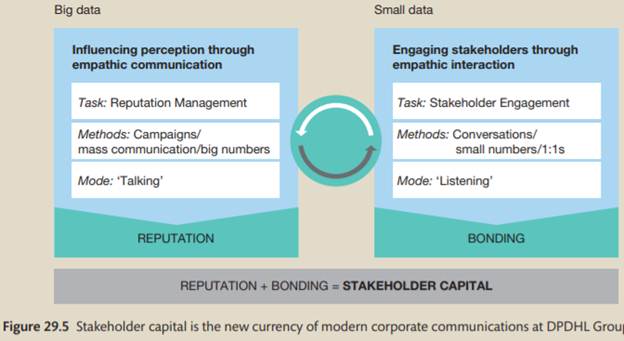Learning from sustainability management: significance and relevance
Although corporate communications has adjusted to the challenges of the postmodern economy, it remains firmly embedded in the accepted paradigm of systematic communications management. At the forefront are still very often abstract target groups which are established using social science methodologies and addressed using massmedia communication tools. However, the new opportunities afforded by social media merely serve to supplement this communications approach by enabling dialogue-based components and specific segmentation of target groups. This means that, although corporate communications are performed under postmodern conditions, a postmodern model has yet to be found. With this in mind, lessons could be learned from the experience gained through the integration of the Corporate Communications and Corporate Responsibility (CR) functions at Deutsche Post DHL Group. This structure shows that with a corporate identity based on a willingness and ability to demonstrate corporate empathy, the two functions can not only learn a lot from each other but can have a mutually enhancing impact beyond their functional areas (see Figure 29.5). Where communicators concentrate on building reputation by influencing public perception, sustainability managers strive to balance the interests of stakeholder groups through dialogue and interaction. While corporate communications is focused on generating media attention (significance) and using mass media to address the many, CR focuses on tackling material issues (relevance) largely through dialogue and exchange with the few. In other words, corporate communications is the better transmitter and CR the better receiver.
Figure 29.5


